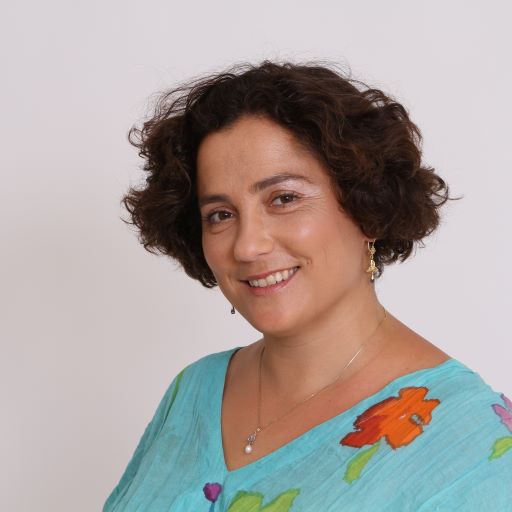Dina Kazhdan
Credentials
Finances
Licensed in Israel
- Yehoshua Ben Gamlah, Old Katemon, 1
- Jerusalem, 92338
Dina Kazhdan
 Verified
Verified
Credentials
Clinical Social Worker, Psychotherapist
MSW
Finances
250-350 NIS
N/A
N/A
ABOUT THE THERAPIST
Choice is so important in our lives. Unfortunately, so many of our choices are rooted in past relationships and the defenses we required in the past to cope with pain. Many of these are no longer helpful now. My goal as a therapist is to help my clients experience their life in the present with increased fullness, creativity, joy and authenticity.
Together we will work through your pain and identify coping patterns you have learned in past relationships and experiences. We will explore the degree to which these patterns continue to aid you in the present and we will develop more healthy and regulated tools and techniques to meet your experience and deal with issues of anxiety, depression, grief, anger, etc. We will process traumas and help store them as past events and not as events that govern the present. Of central value will be our relationship as a place where you can bring both your dreams and hurts, what has come into being and what has not. I am a warm, caring and curious therapist looking to both deepen my clients’ understanding of themselves and their capacity to help themselves with practical techniques. My work includes different modalities including psychodynamic therapy, Cognitive Behavioral Therapy (CBT), Eye Movement Desensitization and Reprocessing (EMDR), Acceptance Commitment Therapy (ACT), Somatic Experience (SE), Spiritual Care and Mindfulness. I tailor my approach to client’s needs and interests.
A bit about my background: I was born in Russia, grew up in America and made aliya 25 years ago. After my move to Israel, I trained as a clinical social worker, a CBT therapist and a psychodynamic psychotherapist. In addition to my work as a therapist, for many years I trained spiritual care providers and am currently running support groups for mothers who recently gave birth. My work is culturally sensitive and I work in English, Hebrew and Russian.
I look forward to talking to you in my clinic or by Zoom.
QUALIFICATIONS
MSW
Hebrew University
2011
Degree
MSWEducation
Hebrew UniversityYear of Graduation
2011Years in Practice
13
LICENSED IN ISRAEL
Registered Social Worker in Israel
18237
ADDITIONAL CREDENTIALS
Completed three year training in psychodynamic therapy in the Psychoanalytical Association-2022
Completed two year training in CBT in The Israeli Center for Psychtrauma - 2017
Training in the 12 Step Program- Israeli Anti Drug Authority - 2008
Trauma Focused Cognitive Behavioral Therapy (TF-CBT) - Israeli Trauma Coalition - 2019
Visual Imagery - Ephim Sversky - 2004
Treating Trauma with Somatic Intervention - Janina Fisher via Path Center - 2018
Somatic Intervention (Stage 1,2,3 and Grief and Loss course) - Ricki Bernstein 2020-2021
EMDR Level 1 and Level 2- Israeli EMDR Association - 2021/2022
IFS Level 1 - IFS Israel - March 2024
DISTANCE COUNSELING
Telephone Counseling, Online Therapy
PRIMARY SPECIALTIES
Depression
Postpartum Depression
Sexual Abuse / Rape
Trauma / Post Traumatic Stress Disorder PTSD
ADDITIONAL SPECIALTIES
Adjustments
Anger Management
Developmental Disorders
Grief
Infertility
Life Transitions
CLIENT FOCUS
Population
Adults
Men
Women
Geriatric
Languages Spoken
Hebrew
English
Russian
TREATMENT APPROACH
Acceptance and Commitment Therapy (ACT)Acceptance and Commitment Therapy (ACT) is a form of psychotherapy that encourages individuals to accept their thoughts, feelings, and experiences without judgment and to use them as tools to help them to make changes in their lives that are consistent with their values. It is based on the idea that by changing the way we think about our inner experiences, we can reduce emotional distress and increase our sense of well-being.
Cognitive Behavioral Therapy (CBT)Cognitive Behavioral Therapy (CBT) is a type of psychotherapy that focuses on how one's thoughts, feelings and behaviors are connected and can be changed. It is based on the idea that how we think (cognition) and how we feel (emotion) can influence how we behave. CBT helps people identify and challenge distorted thinking and replace it with more balanced thinking, leading to improved mood and behavior. ‘Homework’, usually containing practical writing exercises, is often completed by the client between sessions to reinforce the therapy. Examples of tools that practitioners often use are journaling, challenging beliefs, and mindfulness.
Eye Movement Desensitization and Reprocessing Therapy (EMDR)Eye Movement Desensitization and Reprocessing (EMDR) is a psychotherapy treatment that was originally designed to alleviate the distress associated with traumatic memories. It uses a structured approach to address the past events that may be causing current distress, and uses bilateral stimulation, such as eye movements, to activate different neural networks in the brain in order to reduce symptoms of trauma. EMDR has been found to be effective for a wide range of mental health issues, including anxiety, depression, and PTSD.
Internal Family Systems (IFS)Internal Family Systems (IFS) is an evidence-based psychotherapy that uses the metaphor of an internal family of parts to help people gain awareness of how different parts of themselves can interact in healthy and unhealthy ways. IFS encourages people to become curious about their different parts, with the goal of helping them gain access to their true Self or core. Through this process, people can learn to recognize and care for the different parts of themselves, as well as develop compassionate understanding for the origins of their parts. A key principle of IFS is that each part within the person has its own positive intention and is trying to protect the person in some way. By understanding the positive intention of each part, the practitioner and client can work together to help the parts feel heard and understood, and to find more adaptive ways of meeting their needs. IFS has been found to be an effective treatment for a variety of mental health issues, including depression, anxiety, trauma, and relationship issues.
Psychodynamic TherapyPsychodynamic therapy is a form of therapy that focuses on the unconscious mind and how it affects behavior. It works to help people understand and work through past experiences and feelings that may be causing difficulties in the present. This type of therapy encourages individuals to explore their emotions, relationships, and behaviors in order to gain insight into their current difficulties. It can help individuals better understand themselves and their motivations, and gain insight into how past events have impacted their current lives. People tend to develop defense mechanisms when faced with challenges in life. Defense mechanisms may keep painful feelings, memories, and experiences in the unconscious. A few common defense mechanisms include: denial, repression, and rationalization. Psychodynamic therapists encourage people to speak freely about their emotions, desires, and fears. Being open may help uncover vulnerable feelings that have been pushed out of conscious awareness. According to psychodynamic theory, behavior is influenced by unconscious thought. Once painful feelings are brought forth and processed, the defense mechanisms are no longer needed and a person in treatment can start changing unhelpful patterns when coping with life’s challenges.
Somatic Experiencing (SE)Somatic Experiencing (SE) is a body-oriented approach to the healing of trauma and other physical and psychological stresses. It is based on the idea that the body is a powerful source of healing and that unresolved trauma can be resolved through the process of bringing awareness and attention to the physical sensations of the body. By gradually and gently guiding individuals through the sensations associated with their traumatic experience, SE can help to restore balance and well-being more quickly and effectively than traditional psychotherapy. SE utilizes the body’s natural ability to regulate and heal itself and supports individuals in developing more resilience and self-regulation. Somatic Experiencing aims to help people move past the place where they might be “stuck” in processing a traumatic event. SE is often used to treat symptoms of post-traumatic stress disorder (PTSD), anxiety, depression, and other mental health issues.
SERVICES OFFERED
Individual Therapy

 Verified
Verified


